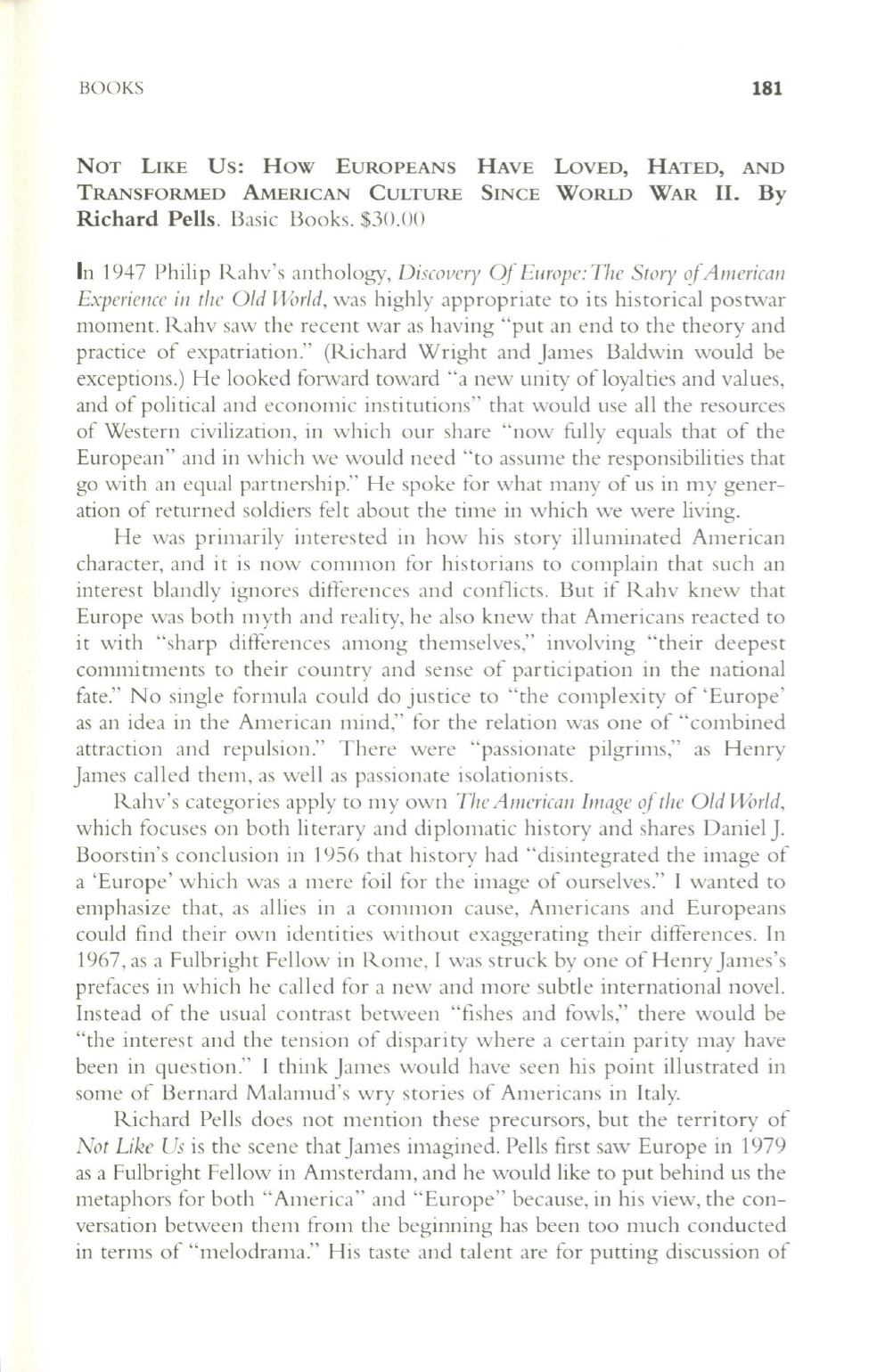
BOOKS
181
NOT LIKE US: How EUROPEANS HAVE LOVED, HATED, AND
TRANSFORMED AMERICAN CULTURE SINCE WORLD WAR
II. By
Richard Pells.
Basic l3ooks. $30.00
In
1947 Philip Rahv's anthology,
Discovcry Of Ellropc:Thc Siory oIAllleriwlI
Experiellcc
ill
thc Old World,
was highly appropriate to its historical postwar
moment. Rahv saw the recent war as having "put an end to the theory and
practice of expatriation." (Richard Wright and james Baldwin would be
exceptions.) He looked forward toward "a new unity of loyalties and values,
and of political and economic institutions" that would use all the resources
of Western civilization, in which our share "now fully equals that of the
European" and in which we would need " to assume the responsibilities that
go with an equal partnership." He spoke for what many of us in my gener–
ation of returned soldiers fel t about the time in which we were living.
He was primarily interested in how his story illuminated American
character, and it is now common for historians to complain that such an
interest blandly ignores differences and conOicts. But if Rahv knew that
Europe was both myth and reality, he also knew that Americans reacted to
it wi th "sharp differences among themselves," involving "their deepest
commitments to their country and sense of participation in the national
fate." No single formula could do justice to "the complexity of 'Europe'
as an idea in the American mind," for the relation was one of "combined
attraction and repulsion." There were "passionate pilgrims," as Henry
james called them , as well as passionate isolationists.
Rahv 's categories apply to my own
TheAlI/criwlI III/age oIthe Old /MJrld,
which focuses on both literary and diplomatic history and shares Daniel
J.
Boorstin's concl usion in 1956 that history had "disintegrated the image of
a 'Europe' which was a mere foil for the image of ourselves." I wanted to
emphasize that, as allies in a common ca use, Americans and Europeans
could find their own identities without exaggerating their differences. In
1967, as a Fulbright Fellow in Rome, I was struck by one of Henry james's
prefaces in which he called for a new and more subtle international novel.
Instead of the usual contrast between "fishes and fowls ," there would be
"the interest and the tension of dispari ty where a certain pari ty may have
been in question." I think james would have seen his point illustrated in
some of Bernard Malamud 's wry stories of Americans in Italy.
Richard Pells does not mention these precursors, but the territory of
Not Like Us
is the scene that james imagined. Pells first saw Europe in 1979
as a Fulbright Fellow in Amsterdam, and he would like to put behind us the
metaphors for both "America" and "Europe" because, in his view, the con–
versation between them from the beginning has been too much conducted
in terms of "melodrama." His taste and talent are for putting discussion of


